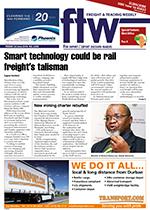This year’s road freight transport wage negotiations will be all about the rands and cents rather than the auxiliary issues as has been the case in the past.
This is according to Mohsina Chenia, an executive consultant in the employment practice of Cliffe Dekker Hofmeyr, who has warned industry to expect some tough opposition from unions in the coming weeks.
Negotiations for the next three-year multi-term wage increases are believed to have officially started between the National Bargaining Council for the Road Freight and Logistics Industry – with the union demands delivered to the bargaining council earlier this month. The details of these demands have not yet been made public.
The current three-year multi-term agreement ends this year. Industry saw wage increases of around 9% across the board in 2016 and 8.5% in 2017 as well as this year. Experts like Chenia are predicting tough negotiations, with unions fighting tooth and nail for each and every penny. She indicated that unions would be far more demanding about the bottom line than the other issues that had in the past been brought to the bargaining council.
“Salary increases are inexorably linked to inflation. If one looks at salary increases over an average of 15 years and takes inflation into account then real salary increases never amounted to more than 1.8% during that period,” she said. “This is an eye opener because we might think 8 or 9 or 10% huge increases, but that has not been the case.”
She said the dim economic outlook would put more pressure on employers to cut costs and had the potential to deliver below inflation increases and even job losses.
“On the other hand, unions are facing a crisis of representativity with union membership declining and only a quarter of the workforce currently unionised, while there is a proliferation of trade unions.” She said in this environment unions were desperate to increase membership and therefore willing to take on any challenge with employers to achieve this end.
“We have a very precarious situation in South Africa where income inequality is amongst the worst in the world. It is something for us to consider, and in this country it is unfortunately race based and becomes a very difficult situation.”
Chenia said in these circumstances finding a balance between various parties’ interests would be utopia, but emphasised that the road freight industry and unions would have to work harder to deliver results at the bargaining table that met the needs of everyone.
INSERT AND CAPTION
If you take inflation into account the real salary increases never amounted to more than 1.8% over an average of 15 years. – Mohsina Chenia

